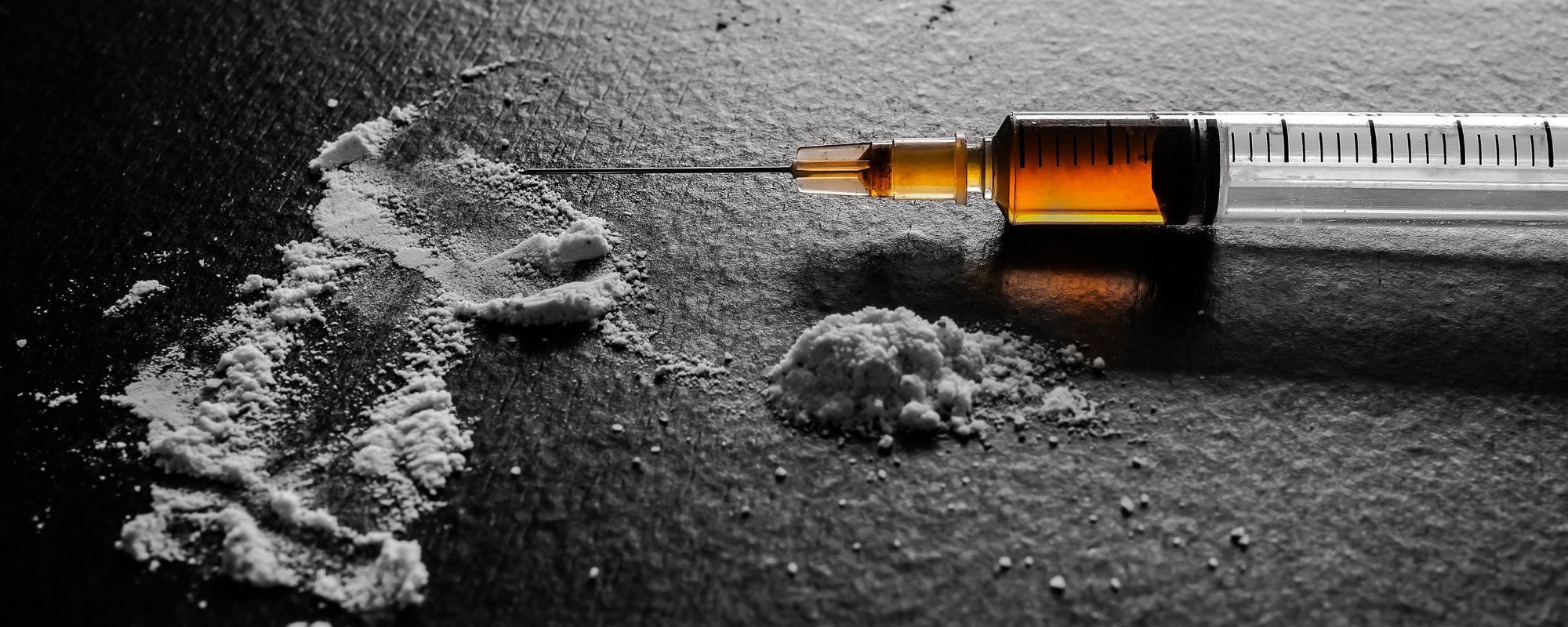Delayed stress disorder is a mental health condition where trauma symptoms don’t arise until months or years after one’s experience. Since it is connected to post-traumatic stress disorder (PTSD), delayed stress disorder is a recognized mental issue. In fact, the Diagnostic and Statistical Manual of Mental Disorders (DSM-5) classifies it as PTSD with delayed specification. Although most symptoms will arise six months or longer after the event, some trauma symptoms may appear immediately. Having a trauma-related disorder like PTSD can be unsettling and debilitating. Trauma symptoms can disturb your ability to enjoy a positive life. Truthfully, trauma must be treated in order for it to be overcome. We can help you face your traumatic experiences at Spokane Heights.
What Is Delayed Stress Disorder?
Delayed stress disorder is a mental health condition where a person experiences symptoms of their trauma later on. Typically, the time range that symptoms will surface after they’re experienced is 6 months to years later. It can happen in people with adverse childhood experiences or adult trauma. Notably, delayed stress disorder is also called delayed onset PTSD and PTSD with delayed expression. It is a common occurrence in veterans and first responders, who are one of the highest risk populations for post-traumatic stress disorder. However, in most veteran cases, symptoms occur less than one year after the experience.
Essentially, it is possible to have PTSD triggered years later. It can take a long time for the symptoms of trauma to develop and appear. In some cases, the individual avoids their trauma so it festers, making the symptoms eventually appear with intensity. Those with childhood or adolescent trauma experiences are most likely to be the ones with delayed stress disorder. There are multiple reasons why it can take time for symptoms to appear. Understandably, children don’t have the words and tools to process traumatic experiences. Thus, they may repress their feelings and memories. However, trauma cannot stay hidden; it will eventually need to be assessed and healed.
Delayed Stress Disorder vs PTSD
Delayed stress disorder has a variety of names, including delayed stress syndrome. As mentioned, it is frequently referred to as delayed-onset PTSD or PTSD with delayed expression. To clarify, delayed stress disorder is a form of post-traumatic stress disorder. The key difference between this version of the disorder and the standard PTSD experience is the late symptoms. Some individuals are not ready to process their trauma immediately after they face it and their symptoms don’t arise for months or years. It isn’t entirely known why some people develop delayed onset PTSD and others don’t. However, it is understood that childhood trauma can take years to surface fully.
Why Trauma Can Remain for Years
To continue, many people who face childhood or adolescent trauma aren’t capable of handling it at the time. As such, they push their experiences into their subconscious as a survival mechanism. Such trauma can’t be processed while the brain isn’t fully developed. And since the child needs to carry on, they repress their trauma for the time being. However, trauma deeply impacts all areas of a person’s wellness, whether it’s acknowledged or not. Trauma cannot stay hidden forever, but many times it does take years before it really surfaces. Even though symptoms may not be intense while trauma is repressed, the individual will still experience signs. These may look like low self-esteem, anxiety, fear of abandonment, self-isolation, or drug abuse.
What Are the Signs and Symptoms of Delayed Stress Disorder?
There are common signs and symptoms of delayed stress disorder, both while trauma is fully exposed and when it is repressed. You may be able to recognize the signs of a delayed trauma disorder in yourself or others. If this is the case, know that trauma needs to be treated in order to heal from it.
- Social isolation
- Mood swings
- Depression
- Anxiety
- Denial
- Substance abuse
- Low self-worth
- Trouble sleeping
- Poor emotional regulation
How Does Delayed Stress Disorder Affect Daily Life?
Delayed stress disorder has many adverse effects on a person’s quality of life. They may not even know their situation differs from others because it’s all they’ve ever known. Studies show that childhood trauma leads to changes in one’s neurological structure, so they process and perceive the world differently. Plus, the occurrence of childhood trauma increases one’s likelihood of having behavioral issues. Even within themselves, they will likely have low self-esteem, difficulty regulating their thoughts and feelings, and a lost sense of protection. Thus, they operate in the world from a place of vulnerability, anxiety, and fear. Additionally, there is a proven link between substance use disorders and trauma disorders like delayed PTSD. Individuals commonly turn to drugs and alcohol to numb or self-medicate their symptoms. Having both a substance use disorder and a mental disorder is common. We treat co-occurring disorders through dual diagnosis treatment.
Reach Out for Help With Drug Addiction
Are you struggling with substance abuse?
Royal Life Centers at Spokane Heights is here to help you recover. Because we care.
Treating Delayed Stress Disorder and Other Trauma Disorders
Trauma-related disorders like delayed stress disorder can and should be treated. People with a delayed trauma response struggle to utilize healthy coping mechanisms because they are missing a sense of protection and stability. As such, they may turn to especially harmful coping aids, like substance abuse or self-harm. We treat trauma disorders using the following traditional and alternative methods.
Evidence-Based Psychotherapy
Evidence-based therapy is the traditional method of treating mental disorders. We believe in the power of traditional psychotherapy to treat mild to severe mental challenges. As such, each of our guests meets with a licensed therapist to unpack their trauma. Through therapy, they learn to connect their traumatic experiences with their current beliefs and behaviors. In order to heal the pain of trauma, it’s important to address it, even though it can be painful to revisit. Our traditional therapy sessions are safe spaces of healing.
EMDR
EMDR stands for eye movement desensitization and reprocessing, and it’s a beneficial therapy for PTSD. The concept behind the therapy is to safely guide individuals into distressing memories while they stay grounded in eye movements. This is one safe and effective way for individuals to access their trauma, especially if it has long been buried.
Brainspotting
Similarly, brainspotting also uses eye positions to help individuals process their traumatic memories. By focusing on one “brainspot” while discussing a traumatic experience, they feel a sense of safety. Through intentional question-asking, the licensed therapist helps their patient tap into a sense of self-healing as they engage in difficult but necessary conversations.
Cognitive-Behavioral Therapy
Cognitive behavioral therapy, or CBT, is a traditional behavioral therapy method that is beneficial for a variety of mental disorders. It focuses on the connection between thoughts, feelings, and behaviors and teaches individuals to replace unhealthy coping mechanisms with healthy ones.
Holistic Treatment for Delayed Stress Disorder
Holistic treatments are those that truly emphasize whole-body recovery. Although delayed post-traumatic stress disorder is a mental illness, it affects more than just the mind. To experience complete wellness that improves your quality of life, you must address your mind, body, and spirit. Therefore, holistic therapies engage different parts of yourself at the same time for an all-around fulfilling experience. Through alternative treatment methods, we help our guests attain a positive transformation throughout their whole being.
Expressive Arts Therapy
Expressive art therapy is a treatment that uses different art forms for inner release. Essentially, any type of art can be included in expressive art therapy. This includes painting, drawing, sculpting, writing, playing music, photography, and dance. Simply through the act of creating, individuals experience improved mental health because making art releases positive brain chemicals. Additionally, making art requires you to use your body for whole-self engagement.
Meditation and Mindfulness
It’s imperative that individuals develop the ability to maintain their emotional stability even when they feel triggered by traumatic experiences. Meditation and mindfulness give people space to sit with their feelings instead of avoiding them. These therapy practices allow people to find safety within their minds, even when they are considering hard memories or feelings. Plus, it aids in the mind-body connection, as it’s important to allow trauma space to be felt.
Diet and Exercise
Healthy eating and regular movement are important routines to develop when dealing with trauma. Every person benefits from these healthy practices, but people battling with their mental health especially profit from routine. At Spokane Heights, we help our guests implement diet and exercise into their lives in numerous ways. During residential inpatient treatment, our guests eat nutritious chef-cooked meals. Additionally, we offer healthy eating training as part of holistic rehab. Further, guests learn to enjoy physical movement through our holistic therapy sessions, including yoga, nature walks, and outdoor adventure therapy.
Experiential Therapies
We provide numerous experiential therapies as part of treatment at Spokane Heights. We encourage our guests to try a number of activities to see what they like. Many of them choose to continue their favorite alternative therapies outside of treatment. Some of the options we offer include:
- Yoga
- Tai chi
- Massage therapy
- Biofeedback
- Equine-assisted therapy
- Music therapy
- Wilderness therapy
- Play therapy
- Sound baths
- Massage chairs
Finding Professional Help for Trauma
Traumatic events can linger for years before resurfacing at the worst times. Whether your symptoms of trauma have plagued you for years or are trapping you unexpectedly, you don’t have to stay in pain. Comprehensive trauma healing exists at Spokane Heights Detox. We help each individual find relief through customized treatment plans combining traditional and alternative therapies. We hope you’ll let us help you because you are not alone! Please give us a call today to arrange treatment for delayed stress disorder. Let our mental health professionals turn your life around!
REFERENCES:
- Neurobiological Mechanisms Underlying Delayed Expression of Posttraumatic Stress Disorder: A Scoping Review – World Journal of Psychiatry
- Posttraumatic Stress Disorder in the US Veteran Population: Results From the National Health and Resilience in Veterans Study – National Library of Medicine
- Substance Use, Childhood Traumatic Experience, and Posttraumatic Stress Disorder in an Urban Civilian Population – National Library of Medicine
- The Impact of Childhood Trauma on Children’s Wellbeing and Adult Behavior – European Journal of Trauma and Dissociation
- Your Brain on Art: The Case for Neuroaesthetics – National Library of Medicine

























